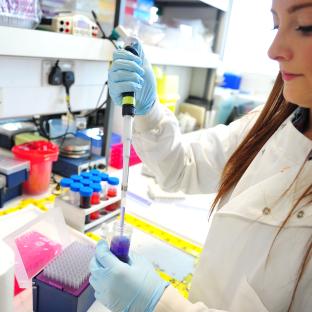International Women’s Day was on 8 March, and to mark the occasion we reflected on the need for a better balance in dementia research. The number of women in science, technology, engineering and mathematics (STEM) occupations is beginning to increase. Analysis of the UK labour force survey for 2018 by WISE records around 900,000 women in STEM occupations, but this still only makes up only 22% of the total STEM workforce and only around 13% of management roles are held by women. We know that the majority of women with STEM qualifications do not work in STEM careers, unlike their male counterparts. This means that the field is haemorrhaging talent.
Alzheimer’s Society is working hard to attract excellent researchers to dementia research and to keep them there. We have done this through taking part in establishing the UK Dementia Research Institute, as well as building supportive relationships with and rewarding our excellent researchers through our Dementia Research Leaders Programme. Crucially we have most recently become one of the few charitable funders who provide maternity/paternity/adoption and sick pay and leave for our PhD students as well as providing guidance and support for more senior researchers. Our researchers have told us that lack of work life balance and support from research institutes is a major factor contributing to women leaving research.
At Alzheimer’s Society we believe that research funding organisations have a key role to play in keeping excellent female researchers in the field. We are continuously evaluating our research funding schemes to remove any gender based bias and support women in research. Of our 154 active research projects 85 are led by women, representing 55% of the current portfolio. More can always be done as research has shown that studies with at least one female contributor are more likely to tackle women’s health issues and difference between the sexes and we know that dementia is an issue that disproportionately affects women.
